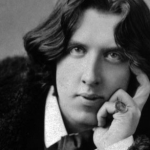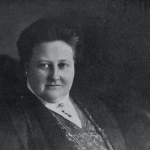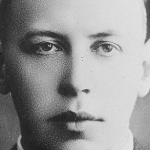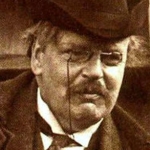Venus and Adonis by William Shakespeare

Even as the sun with purple-colour’d face
Had ta’en his last leave of the weeping morn,
Rose-cheek’d Adonis tried him to the chase;
Hunting he lov’d, but love he laugh’d to scorn;
Sick-thoughted Venus makes amain unto him,
And like a bold-fac’d suitor ‘gins to woo him.
‘Thrice fairer than myself,’ thus she began,
Read Poem Had ta’en his last leave of the weeping morn,
Rose-cheek’d Adonis tried him to the chase;
Hunting he lov’d, but love he laugh’d to scorn;
Sick-thoughted Venus makes amain unto him,
And like a bold-fac’d suitor ‘gins to woo him.
‘Thrice fairer than myself,’ thus she began,
0
The Ballad of Reading Gaol by Oscar Wilde

I
He did not wear his scarlet coat,
For blood and wine are red,
And blood and wine were on his hands
When they found him with the dead,
The poor dead woman whom he loved,
And murdered in her bed.
Read Poem He did not wear his scarlet coat,
For blood and wine are red,
And blood and wine were on his hands
When they found him with the dead,
The poor dead woman whom he loved,
And murdered in her bed.
0
from Idylls of the King: The Last Tournament by Alfred, Lord Tennyson

Dagonet, the fool, whom Gawain in his mood
Had made mock-knight of Arthur's Table Round,
At Camelot, high above the yellowing woods,
Danced like a wither'd leaf before the hall.
And toward him from the hall, with harp in hand,
And from the crown thereof a carcanet
Of ruby swaying to and fro, the prize
Of Tristram in the jousts of yesterday,
Came Tristram, saying, "Why skip ye so, Sir Fool?"
For Arthur and Sir Lancelot riding once
Far down beneath a winding wall of rock
Heard a child wail. A stump of oak half-dead.
From roots like some black coil of carven snakes,
Clutch'd at the crag, and started thro' mid air
Read Poem Had made mock-knight of Arthur's Table Round,
At Camelot, high above the yellowing woods,
Danced like a wither'd leaf before the hall.
And toward him from the hall, with harp in hand,
And from the crown thereof a carcanet
Of ruby swaying to and fro, the prize
Of Tristram in the jousts of yesterday,
Came Tristram, saying, "Why skip ye so, Sir Fool?"
For Arthur and Sir Lancelot riding once
Far down beneath a winding wall of rock
Heard a child wail. A stump of oak half-dead.
From roots like some black coil of carven snakes,
Clutch'd at the crag, and started thro' mid air
0
Towns in Colour by Amy Lowell

I Red Slippers
Red slippers in a shop-window, and outside in the street, flaws of grey, windy sleet!
Behind the polished glass, the slippers hang in long threads of red, festooning from the ceiling like stalactites of blood, flooding the eyes of passers-by with dripping colour, jamming their crimson reflections against the windows of cabs and tram-cars, screaming their claret and salmon into the teeth of the sleet, plopping their little round maroon lights upon the tops of umbrellas.
The row of white, sparkling shop fronts is gashed and bleeding, it bleeds red slippers. They spout under the electric light, fluid and fluctuating, a hot rain—and freeze again to red slippers, myriadly multiplied in the mirror side of the window.
They balance upon arched insteps like springing bridges of crimson lacquer; they swing up over curved heels like whirling tanagers sucked in a wind-pocket; they flatten out, heelless, like July ponds, flared and burnished by red rockets.
Snap, snap, they are cracker-sparks of scarlet in the white, monotonous block of shops.
They plunge the clangour of billions of vermilion trumpets into the crowd outside, and echo in faint rose over the pavement.
People hurry by, for these are only shoes, and in a window, farther down, is a big lotus bud of cardboard whose petals open every few minutes and reveal a wax doll, with staring bead eyes and flaxen hair, lolling awkwardly in its flower chair.
One has often seen shoes, but whoever saw a cardboard lotus bud before?
The flaws of grey, windy sleet beat on the shop-window where there are only red slippers.
II Thompson’s Lunch Room—Grand Central Station
Study in Whites
Wax-white—
Floor, ceiling, walls.
Ivory shadows
Over the pavement
Polished to cream surfaces
By constant sweeping.
The big room is coloured like the petals
Of a great magnolia,
And has a patina
Of flower bloom
Which makes it shine dimly
Under the electric lamps.
Chairs are ranged in rows
Like sepia seeds
Waiting fulfilment.
The chalk-white spot of a cook’s cap
Moves unglossily against the vaguely bright wall—
Dull chalk-white striking the retina like a blow
Through the wavering uncertainty of steam.
Vitreous-white of glasses with green reflections,
Ice-green carboys, shifting—greener, bluer—with the jar of moving water.
Jagged green-white bowls of pressed glass
Rearing snow-peaks of chipped sugar
Above the lighthouse-shaped castors
Of grey pepper and grey-white salt.
Grey-white placards: “Oyster Stew, Cornbeef Hash, Frankfurters”:
Marble slabs veined with words in meandering lines.
Dropping on the white counter like horn notes
Through a web of violins,
The flat yellow lights of oranges,
The cube-red splashes of apples,
In high plated épergnes.
The electric clock jerks every half-minute:
“Coming!—Past!”
“Three beef-steaks and a chicken-pie,”
Bawled through a slide while the clock jerks heavily.
A man carries a china mug of coffee to a distant chair.
Two rice puddings and a salmon salad
Are pushed over the counter;
The unfulfilled chairs open to receive them.
A spoon falls upon the floor with the impact of metal striking stone,
And the sound throws across the room
Sharp, invisible zigzags
Of silver.
III An Opera House
Within the gold square of the proscenium arch,
A curtain of orange velvet hangs in stiff folds,
Its tassels jarring slightly when someone crosses the stage behind.
Gold carving edges the balconies,
Rims the boxes,
Runs up and down fluted pillars.
Little knife-stabs of gold
Shine out whenever a box door is opened.
Gold clusters
Flash in soft explosions
On the blue darkness,
Suck back to a point,
And disappear.
Hoops of gold
Circle necks, wrists, fingers,
Pierce ears,
Poise on heads
And fly up above them in coloured sparkles.
Gold!
Gold!
The opera house is a treasure-box of gold.
Gold in a broad smear across the orchestra pit:
Gold of horns, trumpets, tubas;
Gold—spun-gold, twittering-gold, snapping-gold
Of harps.
The conductor raises his baton,
The brass blares out
Crass, crude,
Parvenu, fat, powerful,
Golden.
Rich as the fat, clapping hands in the boxes.
Cymbals, gigantic, coin-shaped,
Crash.
The orange curtain parts
And the prima-donna steps forward.
One note,
A drop: transparent, iridescent,
A gold bubble,
It floats . . . floats . . .
And bursts against the lips of a bank president
In the grand tier.
IV Afternoon Rain in State Street
Cross-hatchings of rain against grey walls,
Slant lines of black rain
In front of the up and down, wet stone sides of buildings.
Below,
Greasy, shiny, black, horizontal,
The street.
And over it, umbrellas,
Black polished dots
Struck to white
An instant,
Stream in two flat lines
Slipping past each other with the smoothness of oil.
Like a four-sided wedge
The Custom House Tower
Pokes at the low, flat sky,
Pushing it farther and farther up,
Lifting it away from the house-tops,
Lifting it in one piece as though it were a sheet of tin,
With the lever of its apex.
The cross-hatchings of rain cut the Tower obliquely,
Scratching lines of black wire across it,
Mutilating its perpendicular grey surface
With the sharp precision of tools.
The city is rigid with straight lines and angles,
A chequered table of blacks and greys.
Oblong blocks of flatness
Crawl by with low-geared engines,
And pass to short upright squares
Shrinking with distance.
A steamer in the basin blows its whistle,
And the sound shoots across the rain hatchings,
A narrow, level bar of steel.
Hard cubes of lemon
Superimpose themselves upon the fronts of buildings
As the windows light up.
But the lemon cubes are edged with angles
Upon which they cannot impinge.
Up, straight, down, straight—square.
Crumpled grey-white papers
Blow along the side-walks,
Contorted, horrible,
Without curves.
A horse steps in a puddle,
A white, glaring water spurts up
In stiff, outflaring lines,
Like the rattling stems of reeds.
The city is heraldic with angles,
A sombre escutcheon of argent and sable
And countercoloured bends of rain
Hung over a four-square civilization.
When a street lamp comes out,
I gaze at it for full thirty seconds
To rest my brain with the suffusing, round brilliance of its globe.
V An Aquarium
Streaks of green and yellow iridescence,
Silver shiftings,
Rings veering out of rings,
Silver—gold—
Grey-green opaqueness sliding down,
With sharp white bubbles
Shooting and dancing,
Flinging quickly outward.
Nosing the bubbles,
Swallowing them,
Fish.
Blue shadows against silver-saffron water,
The light rippling over them
In steel-bright tremors.
Outspread translucent fins
Flute, fold, and relapse;
The threaded light prints through them on the pebbles
In scarcely tarnished twinklings.
Curving of spotted spines,
Slow up-shifts,
Lazy convolutions:
Then a sudden swift straightening
And darting below:
Oblique grey shadows
Athwart a pale casement.
Roped and curled,
Green man-eating eels
Slumber in undulate rhythms,
With crests laid horizontal on their backs.
Barred fish,
Striped fish,
Uneven disks of fish,
Slip, slide, whirl, turn,
And never touch.
Metallic blue fish,
With fins wide and yellow and swaying
Like Oriental fans,
Hold the sun in their bellies
And glow with light:
Blue brilliance cut by black bars.
An oblong pane of straw-coloured shimmer,
Across it, in a tangent,
A smear of rose, black, silver.
Short twists and upstartings,
Rose-black, in a setting of bubbles:
Sunshine playing between red and black flowers
On a blue and gold lawn.
Shadows and polished surfaces,
Facets of mauve and purple,
A constant modulation of values.
Shaft-shaped,
With green bead eyes;
Thick-nosed,
Heliotrope-coloured;
Swift spots of chrysolite and coral;
In the midst of green, pearl, amethyst irradiations.
Outside,
A willow-tree flickers
With little white jerks,
And long blue waves
Rise steadily beyond the outer islands.
Read Poem Red slippers in a shop-window, and outside in the street, flaws of grey, windy sleet!
Behind the polished glass, the slippers hang in long threads of red, festooning from the ceiling like stalactites of blood, flooding the eyes of passers-by with dripping colour, jamming their crimson reflections against the windows of cabs and tram-cars, screaming their claret and salmon into the teeth of the sleet, plopping their little round maroon lights upon the tops of umbrellas.
The row of white, sparkling shop fronts is gashed and bleeding, it bleeds red slippers. They spout under the electric light, fluid and fluctuating, a hot rain—and freeze again to red slippers, myriadly multiplied in the mirror side of the window.
They balance upon arched insteps like springing bridges of crimson lacquer; they swing up over curved heels like whirling tanagers sucked in a wind-pocket; they flatten out, heelless, like July ponds, flared and burnished by red rockets.
Snap, snap, they are cracker-sparks of scarlet in the white, monotonous block of shops.
They plunge the clangour of billions of vermilion trumpets into the crowd outside, and echo in faint rose over the pavement.
People hurry by, for these are only shoes, and in a window, farther down, is a big lotus bud of cardboard whose petals open every few minutes and reveal a wax doll, with staring bead eyes and flaxen hair, lolling awkwardly in its flower chair.
One has often seen shoes, but whoever saw a cardboard lotus bud before?
The flaws of grey, windy sleet beat on the shop-window where there are only red slippers.
II Thompson’s Lunch Room—Grand Central Station
Study in Whites
Wax-white—
Floor, ceiling, walls.
Ivory shadows
Over the pavement
Polished to cream surfaces
By constant sweeping.
The big room is coloured like the petals
Of a great magnolia,
And has a patina
Of flower bloom
Which makes it shine dimly
Under the electric lamps.
Chairs are ranged in rows
Like sepia seeds
Waiting fulfilment.
The chalk-white spot of a cook’s cap
Moves unglossily against the vaguely bright wall—
Dull chalk-white striking the retina like a blow
Through the wavering uncertainty of steam.
Vitreous-white of glasses with green reflections,
Ice-green carboys, shifting—greener, bluer—with the jar of moving water.
Jagged green-white bowls of pressed glass
Rearing snow-peaks of chipped sugar
Above the lighthouse-shaped castors
Of grey pepper and grey-white salt.
Grey-white placards: “Oyster Stew, Cornbeef Hash, Frankfurters”:
Marble slabs veined with words in meandering lines.
Dropping on the white counter like horn notes
Through a web of violins,
The flat yellow lights of oranges,
The cube-red splashes of apples,
In high plated épergnes.
The electric clock jerks every half-minute:
“Coming!—Past!”
“Three beef-steaks and a chicken-pie,”
Bawled through a slide while the clock jerks heavily.
A man carries a china mug of coffee to a distant chair.
Two rice puddings and a salmon salad
Are pushed over the counter;
The unfulfilled chairs open to receive them.
A spoon falls upon the floor with the impact of metal striking stone,
And the sound throws across the room
Sharp, invisible zigzags
Of silver.
III An Opera House
Within the gold square of the proscenium arch,
A curtain of orange velvet hangs in stiff folds,
Its tassels jarring slightly when someone crosses the stage behind.
Gold carving edges the balconies,
Rims the boxes,
Runs up and down fluted pillars.
Little knife-stabs of gold
Shine out whenever a box door is opened.
Gold clusters
Flash in soft explosions
On the blue darkness,
Suck back to a point,
And disappear.
Hoops of gold
Circle necks, wrists, fingers,
Pierce ears,
Poise on heads
And fly up above them in coloured sparkles.
Gold!
Gold!
The opera house is a treasure-box of gold.
Gold in a broad smear across the orchestra pit:
Gold of horns, trumpets, tubas;
Gold—spun-gold, twittering-gold, snapping-gold
Of harps.
The conductor raises his baton,
The brass blares out
Crass, crude,
Parvenu, fat, powerful,
Golden.
Rich as the fat, clapping hands in the boxes.
Cymbals, gigantic, coin-shaped,
Crash.
The orange curtain parts
And the prima-donna steps forward.
One note,
A drop: transparent, iridescent,
A gold bubble,
It floats . . . floats . . .
And bursts against the lips of a bank president
In the grand tier.
IV Afternoon Rain in State Street
Cross-hatchings of rain against grey walls,
Slant lines of black rain
In front of the up and down, wet stone sides of buildings.
Below,
Greasy, shiny, black, horizontal,
The street.
And over it, umbrellas,
Black polished dots
Struck to white
An instant,
Stream in two flat lines
Slipping past each other with the smoothness of oil.
Like a four-sided wedge
The Custom House Tower
Pokes at the low, flat sky,
Pushing it farther and farther up,
Lifting it away from the house-tops,
Lifting it in one piece as though it were a sheet of tin,
With the lever of its apex.
The cross-hatchings of rain cut the Tower obliquely,
Scratching lines of black wire across it,
Mutilating its perpendicular grey surface
With the sharp precision of tools.
The city is rigid with straight lines and angles,
A chequered table of blacks and greys.
Oblong blocks of flatness
Crawl by with low-geared engines,
And pass to short upright squares
Shrinking with distance.
A steamer in the basin blows its whistle,
And the sound shoots across the rain hatchings,
A narrow, level bar of steel.
Hard cubes of lemon
Superimpose themselves upon the fronts of buildings
As the windows light up.
But the lemon cubes are edged with angles
Upon which they cannot impinge.
Up, straight, down, straight—square.
Crumpled grey-white papers
Blow along the side-walks,
Contorted, horrible,
Without curves.
A horse steps in a puddle,
A white, glaring water spurts up
In stiff, outflaring lines,
Like the rattling stems of reeds.
The city is heraldic with angles,
A sombre escutcheon of argent and sable
And countercoloured bends of rain
Hung over a four-square civilization.
When a street lamp comes out,
I gaze at it for full thirty seconds
To rest my brain with the suffusing, round brilliance of its globe.
V An Aquarium
Streaks of green and yellow iridescence,
Silver shiftings,
Rings veering out of rings,
Silver—gold—
Grey-green opaqueness sliding down,
With sharp white bubbles
Shooting and dancing,
Flinging quickly outward.
Nosing the bubbles,
Swallowing them,
Fish.
Blue shadows against silver-saffron water,
The light rippling over them
In steel-bright tremors.
Outspread translucent fins
Flute, fold, and relapse;
The threaded light prints through them on the pebbles
In scarcely tarnished twinklings.
Curving of spotted spines,
Slow up-shifts,
Lazy convolutions:
Then a sudden swift straightening
And darting below:
Oblique grey shadows
Athwart a pale casement.
Roped and curled,
Green man-eating eels
Slumber in undulate rhythms,
With crests laid horizontal on their backs.
Barred fish,
Striped fish,
Uneven disks of fish,
Slip, slide, whirl, turn,
And never touch.
Metallic blue fish,
With fins wide and yellow and swaying
Like Oriental fans,
Hold the sun in their bellies
And glow with light:
Blue brilliance cut by black bars.
An oblong pane of straw-coloured shimmer,
Across it, in a tangent,
A smear of rose, black, silver.
Short twists and upstartings,
Rose-black, in a setting of bubbles:
Sunshine playing between red and black flowers
On a blue and gold lawn.
Shadows and polished surfaces,
Facets of mauve and purple,
A constant modulation of values.
Shaft-shaped,
With green bead eyes;
Thick-nosed,
Heliotrope-coloured;
Swift spots of chrysolite and coral;
In the midst of green, pearl, amethyst irradiations.
Outside,
A willow-tree flickers
With little white jerks,
And long blue waves
Rise steadily beyond the outer islands.
0
Dolores (Notre-Dame des Sept Douleurs) by Algernon Charles Swinburne

Cold eyelids that hide like a jewel
Hard eyes that grow soft for an hour;
The heavy white limbs, and the cruel
Red mouth like a venomous flower;
When these are gone by with their glories,
What shall rest of thee then, what remain,
O mystic and sombre Dolores,
Our Lady of Pain?
Seven sorrows the priests give their Virgin;
But thy sins, which are seventy times seven,
Seven ages would fail thee to purge in,
And then they would haunt thee in heaven:
Fierce midnights and famishing morrows,
And the loves that complete and control
Read Poem Hard eyes that grow soft for an hour;
The heavy white limbs, and the cruel
Red mouth like a venomous flower;
When these are gone by with their glories,
What shall rest of thee then, what remain,
O mystic and sombre Dolores,
Our Lady of Pain?
Seven sorrows the priests give their Virgin;
But thy sins, which are seventy times seven,
Seven ages would fail thee to purge in,
And then they would haunt thee in heaven:
Fierce midnights and famishing morrows,
And the loves that complete and control
0
Laus Veneris by Algernon Charles Swinburne

Lors dit en plourant; Hélas trop malheureux homme et mauldict pescheur, oncques ne verrai-je clémence et miséricorde de Dieu. Ores m'en irai-je d'icy et me cacherai dedans le mont Horsel, en requérant de faveur et d'amoureuse merci ma doulce dame Vénus, car pour son amour serai-je bien à tout jamais damné en enfer. Voicy la fin de tous mes faicts d'armes et de toutes mes belles chansons. Hélas, trop belle estoyt la face de ma dame et ses yeulx, et en mauvais jour je vis ces chouses-là . Lors s'en alla tout en gémissant et se retourna chez elle, et là vescut tristement en grand amour près de sa dame. Puis après advint que le pape vit un jour esclater sur son baston force belles fleurs rouges et blanches et maints boutons de feuilles, et ainsi vit-il reverdir toute l'escorce. Ce dont il eut grande crainte et moult s'en esmut, et grande pitié lui prit de ce chevalier qui s'en estoyt départi sans espoir comme un homme misérable et damné. Doncques envoya force messaigers devers luy pour le ramener, disant qu'il aurait de Dieu grace et bonne absolution de son grand pesché d'amour. Mais oncques plus ne le virent; car toujours demeura ce pauvre chevalier auprès de Vénus la haulte et forte déesse ès flancs de la montagne amoureuse.
Livre des grandes merveilles d'amour, escript en latin et en françoys par Maistre Antoine Gaget. 1530.
Asleep or waking is it? for her neck,
Kissed over close, wears yet a purple speck
Wherein the pained blood falters and goes out;
Soft, and stung softly — fairer for a fleck.
Read Poem Livre des grandes merveilles d'amour, escript en latin et en françoys par Maistre Antoine Gaget. 1530.
Asleep or waking is it? for her neck,
Kissed over close, wears yet a purple speck
Wherein the pained blood falters and goes out;
Soft, and stung softly — fairer for a fleck.
0
The Highwayman by Alfred Noyes

PART ONE
The wind was a torrent of darkness among the gusty trees.
The moon was a ghostly galleon tossed upon cloudy seas.
The road was a ribbon of moonlight over the purple moor,
And the highwayman came riding—
Riding—riding—
The highwayman came riding, up to the old inn-door.
He’d a French cocked-hat on his forehead, a bunch of lace at his chin,
Read Poem The wind was a torrent of darkness among the gusty trees.
The moon was a ghostly galleon tossed upon cloudy seas.
The road was a ribbon of moonlight over the purple moor,
And the highwayman came riding—
Riding—riding—
The highwayman came riding, up to the old inn-door.
He’d a French cocked-hat on his forehead, a bunch of lace at his chin,
0
Kumina by Kamau Brathwaite

for DreamChad on the death of her sun Mark - mark this word mark this place + tyme - at Papine Kingston Jamaica - age 29
midnight 28/29 April 2001-1002-0210-0120-0020-0000
rev 29 feb 04
Read Poem midnight 28/29 April 2001-1002-0210-0120-0020-0000
rev 29 feb 04
0
The History of Jazz by Kenneth Koch

I
The leaves of blue came drifting down.
In the corner Madeleine Reierbacher was reading Lorna Doone.
The bay’s water helped to implement the structuring of the garden hose.
The envelope fell. Was it pink or was it red? Consult Lorna Doone.
There, voyager, you will find your answer. The savant grapeade stands
Remember Madeleine Reierbacher. Madeleine Reierbacher says,
“If you are happy, there is no one to keep you from being happy;
Read Poem The leaves of blue came drifting down.
In the corner Madeleine Reierbacher was reading Lorna Doone.
The bay’s water helped to implement the structuring of the garden hose.
The envelope fell. Was it pink or was it red? Consult Lorna Doone.
There, voyager, you will find your answer. The savant grapeade stands
Remember Madeleine Reierbacher. Madeleine Reierbacher says,
“If you are happy, there is no one to keep you from being happy;
0
Ballad of the Salvation Army by Kenneth Fearing

On Fourteenth street the bugles blow,
Bugles blow, bugles blow.
The red, red, red, red banner floats
Where sweating angels split their throats,
Marching in burlap petticoats,
Blow, bugles, blow.
God is a ten car Bronx express,
Red eyes round, red eyes round.
Read Poem Bugles blow, bugles blow.
The red, red, red, red banner floats
Where sweating angels split their throats,
Marching in burlap petticoats,
Blow, bugles, blow.
God is a ten car Bronx express,
Red eyes round, red eyes round.
0
The Waste Land by T. S. Eliot

‘Nam Sibyllam quidem Cumis ego ipse oculis meis vidi in ampulla pendere, et cum illi pueri dicerent:Σίβυλλα τίθέλεις; respondebat illa:άποθανεîνθέλω.’ For Ezra Pound
il miglior fabbro. I. The Burial of the Dead
Read Poem il miglior fabbro. I. The Burial of the Dead
0
Hymn to Life by James Schuyler

The wind rests its cheek upon the ground and feels the cool damp
And lifts its head with twigs and small dead blades of grass
Pressed into it as you might at the beach rise up and brush away
The sand. The day is cool and says, “I’m just staying overnight.”
The world is filled with music, and in between the music, silence
And varying the silence all sorts of sounds, natural and man made:
There goes a plane, some cars, geese that honk and, not here, but
Not so far away, a scream so rending that to hear it is to be
Read Poem And lifts its head with twigs and small dead blades of grass
Pressed into it as you might at the beach rise up and brush away
The sand. The day is cool and says, “I’m just staying overnight.”
The world is filled with music, and in between the music, silence
And varying the silence all sorts of sounds, natural and man made:
There goes a plane, some cars, geese that honk and, not here, but
Not so far away, a scream so rending that to hear it is to be
0
Wildflowers by Richard Howard

for Joseph Cady
Camden, 1882 Is it raining, Mary, can you see?
Read Poem Camden, 1882 Is it raining, Mary, can you see?
0
Alastor; or, The Spirit of Solitude by Percy Bysshe Shelley

Nondum amabam, et amare amabam, quaerebam quid amarem, amans amare.—
Confess. St. August. Earth, ocean, air, belovèd brotherhood!
If our great Mother has imbued my soul
With aught of natural piety to feel
Your love, and recompense the boon with mine;
Read Poem Confess. St. August. Earth, ocean, air, belovèd brotherhood!
If our great Mother has imbued my soul
With aught of natural piety to feel
Your love, and recompense the boon with mine;
0
Lepanto by G. K. Chesterton

White founts falling in the courts of the sun,
And the Soldan of Byzantium is smiling as they run;
There is laughter like the fountains in that face of all men feared,
It stirs the forest darkness, the darkness of his beard,
It curls the blood-red crescent, the crescent of his lips,
For the inmost sea of all the earth is shaken with his ships.
They have dared the white republics up the capes of Italy,
They have dashed the Adriatic round the Lion of the Sea,
Read Poem And the Soldan of Byzantium is smiling as they run;
There is laughter like the fountains in that face of all men feared,
It stirs the forest darkness, the darkness of his beard,
It curls the blood-red crescent, the crescent of his lips,
For the inmost sea of all the earth is shaken with his ships.
They have dared the white republics up the capes of Italy,
They have dashed the Adriatic round the Lion of the Sea,
0
Love in the Valley by George Meredith

Under yonder beech-tree single on the green-sward,
Couched with her arms behind her golden head,
Knees and tresses folded to slip and ripple idly,
Lies my young love sleeping in the shade.
Had I the heart to slide an arm beneath her,
Press her parting lips as her waist I gather slow,
Waking in amazement she could not but embrace me:
Then would she hold me and never let me go?
Read Poem Couched with her arms behind her golden head,
Knees and tresses folded to slip and ripple idly,
Lies my young love sleeping in the shade.
Had I the heart to slide an arm beneath her,
Press her parting lips as her waist I gather slow,
Waking in amazement she could not but embrace me:
Then would she hold me and never let me go?
0
Bean Spasms by Ted Berrigan

for George Schneeman New York’s lovely weather
hurts my forehead
Read Poem hurts my forehead
0
Kaddish by Allen Ginsberg

For Naomi Ginsberg, 1894—1956 I
Strange now to think of you, gone without corsets & eyes, while I walk on the sunny pavement of Greenwich Village.
Read Poem Strange now to think of you, gone without corsets & eyes, while I walk on the sunny pavement of Greenwich Village.
0
The Double Image by Anne Sexton

1.
I am thirty this November.
You are still small, in your fourth year.
We stand watching the yellow leaves go queer,
flapping in the winter rain,
falling flat and washed. And I remember
mostly the three autumns you did not live here.
They said I’d never get you back again.
Read Poem I am thirty this November.
You are still small, in your fourth year.
We stand watching the yellow leaves go queer,
flapping in the winter rain,
falling flat and washed. And I remember
mostly the three autumns you did not live here.
They said I’d never get you back again.
0
